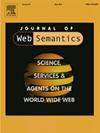Knowledge prompting: How knowledge engineers use generative AI
IF 3.1
3区 计算机科学
Q3 COMPUTER SCIENCE, ARTIFICIAL INTELLIGENCE
引用次数: 0
Abstract
Despite many advances in knowledge engineering (KE), challenges remain in areas such as engineering knowledge graphs (KGs) at scale, automating tasks, and keeping pace with evolving domain knowledge. KE has used NLP demonstrating notable advantages in knowledge-intensive tasks, but the most effective use of generative AI to support knowledge engineers across the KE activities is still in its infancy. To explore how generative AI may enhance KE and change existing KE practices, we conducted a multi-method study during a KE hackathon. We investigated participants’ views on the use of generative AI, the challenges they face, the skills they may need to integrate generative AI into their practices, and how they use generative AI responsibly. We found participants felt LLMs could indeed contribute to improving efficiency when engineering KGs, but presented increased challenges around the already complex issues of evaluating KE task success. We discovered prompting to be a useful but undervalued skill for knowledge engineers working with LLMs, and note that NLP skills may become more relevant across more roles in KE workflows. Integrating generative AI into KE tasks needs to be done with awareness of potential risks and harms. Given the limited ethical training most knowledge engineers receive, solutions such as our proposed ‘KG Cards’ based on Data Cards could be a useful guide for KG construction. Our findings can support designers of KE AI copilots, KE researchers, and practitioners using advanced AI to develop trustworthy applications, propose new methodologies for KE and operate new technologies responsibly.
知识提示:知识工程师如何使用生成式人工智能
尽管知识工程(KE)取得了许多进步,但在大规模的工程知识图(KGs)、自动化任务以及与不断发展的领域知识保持同步等领域仍然存在挑战。KE使用NLP在知识密集型任务中显示出显着的优势,但最有效地使用生成人工智能来支持KE活动中的知识工程师仍处于起步阶段。为了探索生成式人工智能如何增强KE并改变现有的KE实践,我们在KE黑客马拉松期间进行了一项多方法研究。我们调查了参与者对使用生成式人工智能的看法,他们面临的挑战,他们将生成式人工智能整合到实践中可能需要的技能,以及他们如何负责任地使用生成式人工智能。我们发现,参与者认为法学硕士确实有助于提高工程kg的效率,但在评估KE任务成功的本已复杂的问题上提出了更大的挑战。我们发现,对于与法学硕士一起工作的知识工程师来说,提示是一种有用但被低估的技能,并注意到NLP技能可能在KE工作流中的更多角色中变得更加相关。将生成式人工智能集成到KE任务中需要意识到潜在的风险和危害。鉴于大多数知识工程师接受的道德培训有限,我们提出的基于数据卡的“KG卡”等解决方案可能是KG建设的有用指南。我们的研究结果可以支持KE AI副驾驶的设计人员、KE研究人员和使用先进AI的从业者开发值得信赖的应用程序,为KE提出新的方法,并负责任地操作新技术。
本文章由计算机程序翻译,如有差异,请以英文原文为准。
求助全文
约1分钟内获得全文
求助全文
来源期刊

Journal of Web Semantics
工程技术-计算机:人工智能
CiteScore
6.20
自引率
12.00%
发文量
22
审稿时长
14.6 weeks
期刊介绍:
The Journal of Web Semantics is an interdisciplinary journal based on research and applications of various subject areas that contribute to the development of a knowledge-intensive and intelligent service Web. These areas include: knowledge technologies, ontology, agents, databases and the semantic grid, obviously disciplines like information retrieval, language technology, human-computer interaction and knowledge discovery are of major relevance as well. All aspects of the Semantic Web development are covered. The publication of large-scale experiments and their analysis is also encouraged to clearly illustrate scenarios and methods that introduce semantics into existing Web interfaces, contents and services. The journal emphasizes the publication of papers that combine theories, methods and experiments from different subject areas in order to deliver innovative semantic methods and applications.
 求助内容:
求助内容: 应助结果提醒方式:
应助结果提醒方式:


